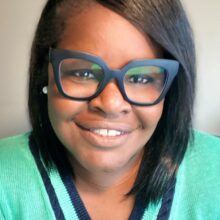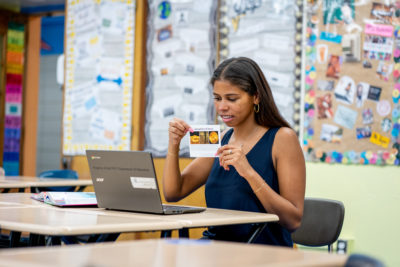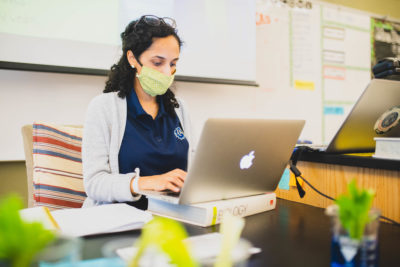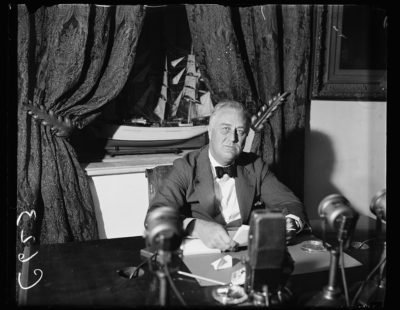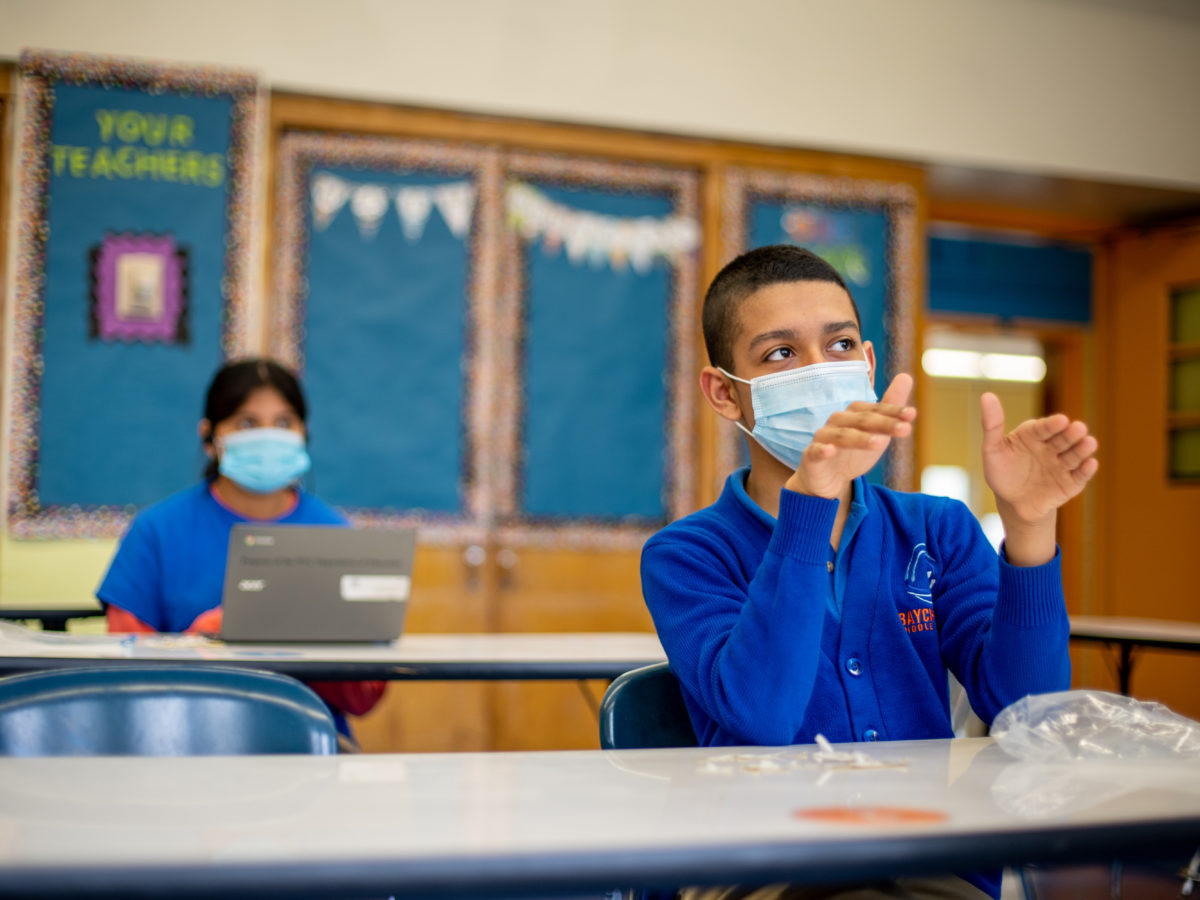

The following is part of my monthly column, One Day and One Goal: Expanding opportunity in NC. I invite you to follow along as I share stories from classrooms and explore critical issues facing education in our state. Go here for past columns.
In my conversations with principals, teacher-coaches, and veteran teachers across our state, one thing has become clear: getting back to “normal” is not enough. As we work toward a future of education where all students feel safe, developed, and proud of who they are, we must acknowledge not only our past but also our present.
In addition to the strains teachers have already been feeling — like pay, shortages, and their impact on health and emotional wellness — I would add one further strain that is missing from the headlines.
Students are tired.
Yes, that headline by itself is prevalent. But we can’t neglect the connection between student and teacher well-being.
For every student struggling to adjust to in-person learning, there is a teacher navigating their own adjustment. And for every one teacher, there is a classroom of students with wildly different experiences from the 2020-2021 school year.
When students are excited to come to school, our teachers’ jobs become that much more joyful and fulfilling. That’s why today I wanted to share with you a few of the ways I see students being uplifted and listened to, in order to make their schooling experience better.
These schools, students, and teachers are showing us that it’s possible.
The future of education includes support at every level
Southwest Edgecombe High School in Pinetops, North Carolina, is led by District Principal of the Year Lauren Lampron (and Teach for America Eastern North Carolina alumna from 2010). Under Lampron’s leadership, simple suggestions to maximize the school environment are taken to heart.
“I always tell my students, and they agree: this principal will hear you out,” says second-year teacher Sarah Scott (Eastern North Carolina ‘20). “She won’t always agree with you or go with what you say, but she’ll listen, and that’s how good ideas have been implemented.”
One such idea has been the extension of the student lunch break to include an additional hour for tutorials two days a week and extracurricular activities the other three days. In these spaces, students can prioritize working with teachers in whose classes they are struggling or who they simply admire and from whom they want to learn more. Whether it be anime, rugby, or Uno club, students have a designated time to explore their interests or simply take a break.
Another is the repurposing of the in-school suspension (ISS) room to also include a “chill out” space for students who are feeling overstimulated or are experiencing tension with their peers in the classroom. They can rest or continue their school work in a monitored private room, and return whenever they’re ready. The effect, Scott notes, has been encouraging.
“Southwest is really big on – a kid isn’t going to learn if they’re not coming to school, so we have to make school a place that’s safe for them,” Scott says. “Students are different now. There should be expectations that they’re going to have off days. When that happens, I don’t want to remove options to put something on a student’s record, so it helps to offer them a voluntary space that’s guaranteed to be quiet. It’s working for them.”
TFA’s reflection-based model
Just like Lampron and Scott, Teach For America has been working to be just as responsive in our support of new and early-career teachers to ensure they can quickly adapt to the needs of their students. We’ve developed a coaching model that is both individualized and scalable across the 23 district and charter partners we serve across North Carolina. Based largely on the work of education consultant Elena Aguilar and other master educators, our “transformational teaching model” consists of cyclical coaching conversations that centers adult development via “belief, being, and behavior.”
During the first eight weeks of the school year, first- and second-year TFA corps members receive weekly coaching conversations. Then they proceed biweekly, or with more frequency based on the type of support requested by the corps member.
“Reflection-based practice is something many school teams want to work on with their teachers, but they just don’t have the time,” explains Managing Director of Program Kristi Orange (Greater New Orleans ‘09). “We know our value-add is to develop corps members by helping them identify how they’re showing up, how their identity and leadership impacts their instruction and their students’ achievement.”
Through the leadership development TFA provides, and the data-based development their placement districts provide, our teachers and their students are showing growth. The data has shown us that teachers are not only more satisfied with this type of support, but that many of our placement schools are as well, because the end goal is a shared one: providing students with excellent educators who will engage them in rigorous and culturally responsive learning.
The future also includes fun
The right of every student to an excellent education in an environment of emotional and physical safety is not always so straightforward to deliver, as schools like Garinger High School in Charlotte, North Carolina, are finding. With an influx of students back to the classroom, the cases of weapons found on campus have been on the rise. That’s why the goal of this year’s student government association (SGA) to increase student involvement – and thereby attendance – has been so close to home.
“We have to spend all this time at school together,” laughs one member of SGA. “It might as well be fun.”
First-year Spanish teacher Caroline Fatemi (Charlotte-Piedmont Triad ‘21) was quickly matched with the SGA when her experience in student government came up during her interview.
“I said yes when they asked me if I would be interested in being the SGA advisor,” Fatemi says. “But I wasn’t exactly sure what that entailed.”
Fortunately, she had a great deal of help. The former advisor, another Spanish teacher and TFA alumna, left a helpful guide to fill her in. A committee of teachers stepped in to help with planning for the traditional fall homecoming court, the students assisting noting the positive and complimentary air among the nominees. When it became clear that a homecoming dance would not be possible due to safety precautions, Garinger’s assistant principal was also a helpful resource in brainstorming alternatives.
It was the student leadership of the SGA, however, that made the week special. They chose themed days of the week, including Character Day, Twin Day, Throwback Day, and Pink Out for breast cancer awareness. A particular highlight was Cultural Pride Day. The diversity of the school was in full display, as students arrived in fútbol jerseys, traditional garments, and more.
“Normally attendance on Mondays and Fridays is [low],” says one member of the SGA. “But more students showed up at school, honestly.”
Through the week, the student band – including a stellar drum line – and cheerleading team alternated performing for their fellow students during lunch, like daily “adjusted” pep rallies.
“As soon as the drum line warmed up, students flocked to the room, lining up to see them,” Fatemi says. “The cheerleaders worked so hard, collaborating and making it their own. I was so proud to see students paying attention and enjoying it.”
Then, the homecoming football game arrived, and against all odds, it seemed, Garinger won. Students stormed the field for the first time in three years.
“They were calling it the best day ever,” Fatemi continues. “They were talking amongst each other, like how can we celebrate the team?”
In keeping with the theme of “Throwback Day,” dance battles erupted throughout the school the day after the game, a crowd of students meeting up after each period and getting so big that the staff had to break it up to get students back to class on time.
“It’s nice when high schoolers remind you how young they are. Things like this remind you that they want to have fun and feel that school spirit,” Fatemi says.
What we can do to get there
A future where students are engaged, are able to take care of their physical and emotional needs, and are encouraged to bring their whole identity to school is what we’re after.
Now is the time to think about our systems, structures, and curriculum, and ask ourselves how we can better meet students and teachers where they are. At TFA, we have the privilege to see teachers and schools across the state develop student learning and leadership and share promising practices to our network of education advocates.
We all have much further to go. We will get even closer to an equitable, excellent education for all North Carolina’s students by listening to them and respecting the full diversity of who and what “school” includes.
